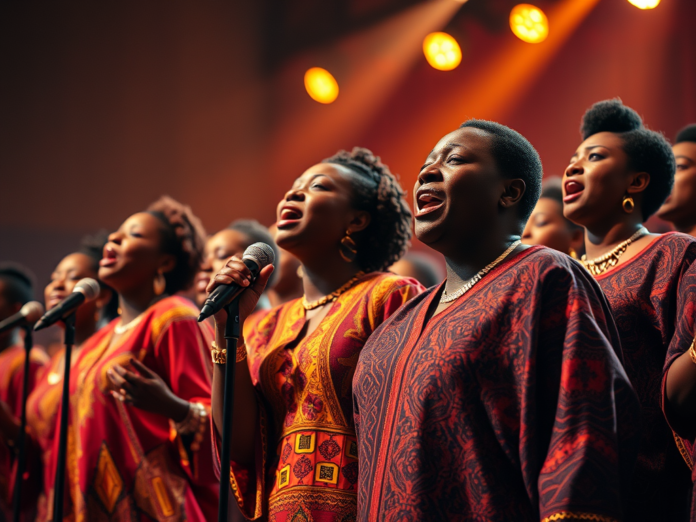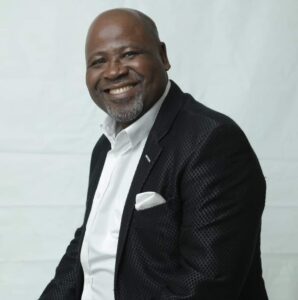Soweto Gospel Choir: A Journey of Faith, Music, and Unity
Early Beginnings and Formation

The Soweto Gospel Choir was founded in November 2002 in Soweto, a township outside Johannesburg, South Africa, known for its deep history of resistance against apartheid and for being a cultural hub of African music, arts, and politics. Soweto, an abbreviation of “South Western Townships,” has a long legacy of struggle, hope, and resilience. It was in this vibrant, culturally rich backdrop that the seeds of the choir were planted.
The choir was conceived by David Mulovhedzi, a musician and choir master, and Beverly Bryer, an experienced producer, with the vision of creating a gospel choir that would showcase South Africa’s diverse vocal talent while sharing the country’s cultural richness and religious fervor with the world. Their mission was to uplift people through music, using the choir as a platform to celebrate South Africa’s distinct musical traditions while also uniting individuals from different backgrounds.
From its inception, the Soweto Gospel Choir’s ambition was to transcend mere entertainment and become a beacon of hope, peace, and unity through their spiritual and moving performances. They combined traditional African gospel music with other musical genres such as spirituals, reggae, and pop, creating a sound that was both authentic and contemporary.
Early Achievements and Breakthrough
The choir’s journey from local performances to international fame was swift, a testament to the powerful voices and the strong emotional resonance of their music. Under the musical direction of Mulovhedzi and Bryer, the Soweto Gospel Choir immediately captured the attention of audiences both in South Africa and abroad. Their combination of vocal prowess, vibrant African rhythms, and traditional dress made them a unique musical act that stood out on the world stage.
Their debut album, “Voices from Heaven” (2003), was an immediate success, topping Billboard’s World Music Chart. The album was a soulful mix of traditional African gospel and Christian hymns, all sung in a range of South African languages such as Zulu, Xhosa, and Sotho, as well as English. It showcased the rich vocal harmonies and rhythmic intricacies for which the choir would become famous.
International tours soon followed. The Soweto Gospel Choir quickly became a sensation, performing in prestigious venues such as Carnegie Hall in New York, Sydney Opera House in Australia, and the Royal Festival Hall in London. Their reputation for powerful, moving performances earned them legions of fans and critical acclaim. By 2004, the choir had gained such prominence that they were invited to perform at Nelson Mandela’s 46664 AIDS Benefit Concert in Cape Town, alongside global stars like Queen and Bono from U2.
The Grammy Wins
The Soweto Gospel Choir’s global stature was solidified when they won their first Grammy Award in 2007 for their second album, “Blessed”, under the category of Best Traditional World Music Album. This award was a pivotal moment in their career, marking them as one of the foremost musical groups to emerge from South Africa. The Grammy win was a proud moment not only for the choir but for South Africans as a whole, as the choir symbolized the country’s resilience and creative spirit post-apartheid.
The choir went on to win a second Grammy in 2008, again in the category of Best Traditional World Music Album, for their third album, “African Spirit”. The album was a beautiful fusion of traditional African sounds, gospel hymns, and inspirational spirituals. It featured powerful renditions of songs such as “Asimbonanga” by Johnny Clegg, a tribute to Nelson Mandela, and a breathtaking version of Bob Dylan’s “I’ll Remember You”. The second Grammy win firmly established the Soweto Gospel Choir as international ambassadors of South African culture and gospel music.
The Choir’s Unique Sound and Style
What makes the Soweto Gospel Choir stand out is not just their vocal ability but their seamless fusion of different musical traditions. The choir’s music draws from a deep well of African gospel, spirituals, and folk music, reflecting the religious and cultural diversity of South Africa. They sing in a range of languages, including English, Zulu, Sotho, Xhosa, and Afrikaans, celebrating the rich linguistic heritage of their homeland.
Their music is characterized by tight harmonies, dynamic rhythms, and layered vocals, creating a sound that is uplifting and deeply spiritual. Each performance is a celebration of life, faith, and humanity, with the singers pouring their emotions into each song, drawing listeners into their world of joy, sorrow, and hope.
The visual elements of their performances are just as compelling. Clad in traditional South African attire, the choir’s performances are full of color and movement, adding to the energy of the music. Their dances, rooted in traditional African movements, often accompany the songs, creating a multisensory experience that captivates audiences across the globe.
Social Impact and Philanthropy
From the beginning, the Soweto Gospel Choir has been more than just a musical group; they have consistently used their platform to make a difference in their community. Through their partnership with Nkosi’s Haven/Vukani, an organization that supports HIV/AIDS orphans, the choir has raised both awareness and funds for people affected by the disease. The choir regularly donates a portion of its earnings to help orphans and vulnerable children in Soweto and beyond.
Their involvement in the fight against HIV/AIDS is personal as well as philanthropic. Many members of the choir come from communities that have been deeply affected by the HIV/AIDS pandemic, and they see their work as part of a broader effort to help bring healing and hope. The choir’s performances often include tributes to Nelson Mandela and other figures who have played pivotal roles in the fight against apartheid and in supporting those affected by HIV/AIDS.
In addition to their work with Nkosi’s Haven, the Soweto Gospel Choir is also involved in various other charitable causes. They have performed at numerous benefit concerts, raising money for disaster relief, health initiatives, and education. The choir sees their music as a tool for change, one that can inspire people to take action for the betterment of society.
Collaborations and Partnerships
Throughout their career, the Soweto Gospel Choir has collaborated with numerous international artists, further expanding their reach and influence. Their collaborations with artists across various genres demonstrate the choir’s versatility and openness to different musical styles.
Some of their most notable collaborations include performances with artists such as:
- U2: They joined forces with Bono and U2 during several humanitarian events and concerts, notably performing “Amazing Grace” and other songs with the iconic Irish band.
- Peter Gabriel: The choir worked with the British rock star, most famously on the soundtrack for the 2009 film “Wall-E”, which earned them an Academy Award nomination.
- Annie Lennox: The Soweto Gospel Choir contributed to her album “Songs of Mass Destruction”, providing vocals for the anthem “Sing”, which was dedicated to the fight against HIV/AIDS.
- Queen: The choir joined the legendary rock band in multiple performances, adding their signature gospel flair to songs like “We Are the Champions”.
Their ability to adapt their style to different genres, from rock to pop and R&B, while maintaining their authentic African sound, has made them one of the most sought-after choirs for collaborations and performances around the world.
Tributes and National Recognition
The Soweto Gospel Choir has not only achieved global recognition but is also celebrated as one of South Africa’s most treasured cultural exports. The choir is seen as a representative of the country’s incredible musical heritage and a symbol of post-apartheid unity.
They have performed at numerous high-profile events, including the 2010 FIFA World Cup held in South Africa, where they sang during the opening and closing ceremonies. Their performance at the Funeral of Nelson Mandela in 2013 was one of the most poignant moments in their career. As one of the world’s most revered choirs, they paid tribute to the man who had become a global symbol of peace, justice, and reconciliation.
Adapting to New Challenges: The COVID-19 Pandemic
Like most performing arts groups, the Soweto Gospel Choir faced significant challenges during the COVID-19 pandemic, which severely restricted live performances and international tours. However, their adaptability shone through during this difficult period.
The choir embraced digital platforms, performing virtual concerts and collaborating with artists worldwide through online performances. These efforts allowed them to continue reaching global audiences despite the restrictions. They used their music to bring hope and comfort during a time of uncertainty, reaffirming their mission of using music to heal and uplift.
Continuing the Legacy
After more than two decades of success, the Soweto Gospel Choir remains as dynamic and relevant as ever. While some members have come and gone over the years, the spirit of the choir has remained the same: to bring people together through music, to celebrate South Africa’s rich cultural heritage, and to use their platform to make a positive impact in the world.
Their enduring success is a testament to their talent, vision, and unwavering commitment to their mission. With each performance, the Soweto Gospel Choir continues to inspire, uplift, and connect people from all walks of life, transcending borders, languages, and cultures.
As they move forward, the choir’s future looks bright. Their upcoming projects include new recordings, tours, and collaborations, ensuring that their legacy of excellence will continue for years to come. Above all, the Soweto Gospel Choir remains a powerful symbol of the transformative power of music and the strength of the human spirit.
In the words of their co-founder, Beverly Bryer: “The Soweto Gospel Choir is about more than music—it’s about love, unity, and hope for a better tomorrow.” Through their journey, they have proven that music, indeed, has the power to change the world.














